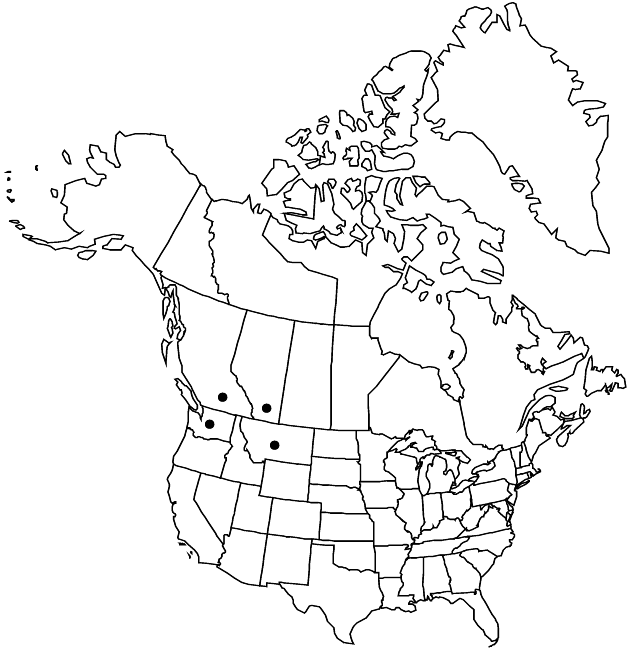Packera contermina
Novon 9: 457. 1999.
Perennials, 4–10+ cm; rhizomatous and/or fibrous-rooted (mat-forming, bases ascending to erect, coarse). Stems 1 or 2–3, clustered, bases floccose-tomentose, leaf axils tomentose, glabrous elsewhere. Basal leaves (thick, fleshy) petiolate; blades usually ovate, oblong, or spatulate, sometimes sublyrate, 20–50+ × 20–40+ mm, bases tapering (to winged petioles) or abruptly contracted to subcordate (petioles narrow), margins crenate, coarsely serrate, or subentire. Cauline leaves (often cyanic) gradually reduced (sessile, not clasping; lanceolate to linear, usually irregularly and shallowly lobed, rarely entire). Heads 1–2(–5+). Peduncles conspicuously bracteate, glabrous. Calyculi conspicuous (tips of bractlets often purple). Phyllaries 21, deep red or green (tips reddish), 8–12+ mm, white-tomentose proximally. Ray florets 10–12; corolla laminae 8–14+ mm. Disc florets 55–75+; corolla tubes 2.5–3.5 mm, limbs 3–4 mm. Cypselae 1–1.25 mm, glabrous; pappi 4–7 mm. 2n = 160+.
Phenology: Flowering early Jul–late Aug.
Habitat: Subalpine or alpine, open areas, rocky slopes or ravines, moist tundra or snowbeds
Elevation: 2100–3000 m
Distribution

Alta., B.C., Mont., Wash.
Discussion
Packera contermina grows in rocky areas and produces relatively short rhizomes and abundant thin fibrous roots. In mesic sites, the rhizomes are more robust and the fibrous roots are fewer. This taxon has been treated as part of P. cymbalaria or P. subnuda. Morphologic and cytologic data lend support to its recognition at species rank.
Selected References
None.